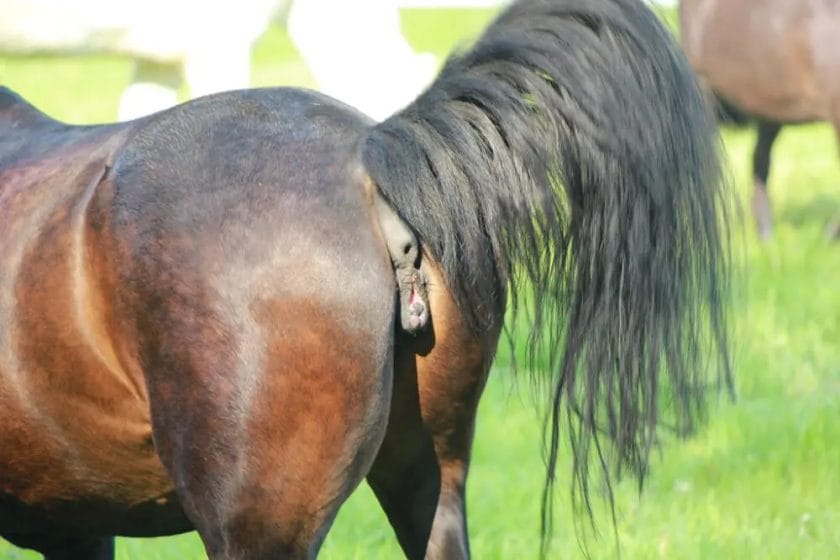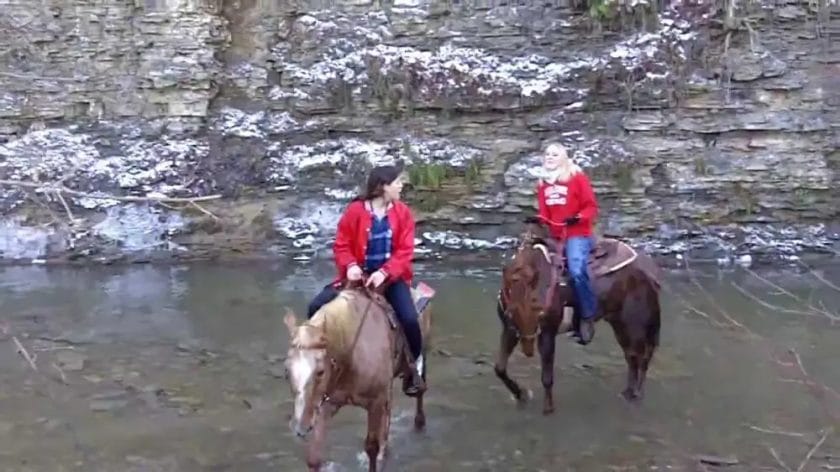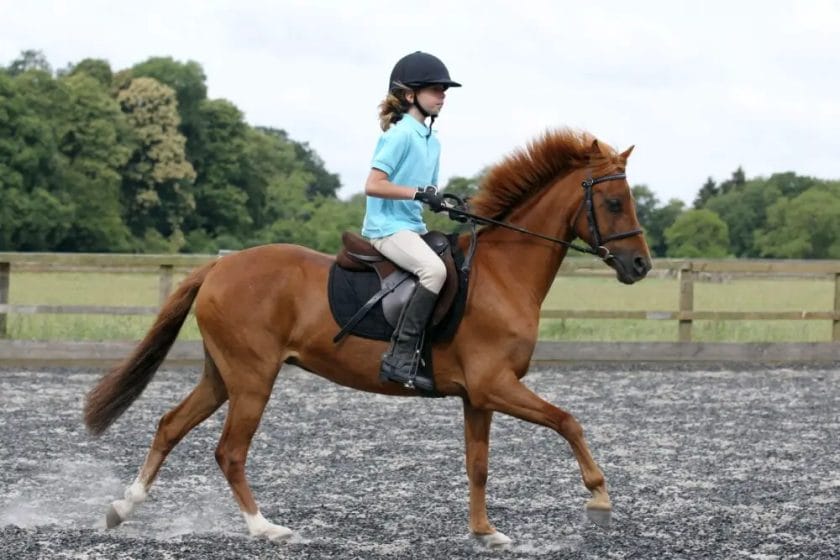Have you ever wondered how parades manage to keep the streets clean when there are horses walking along the route? It’s a common concern, but parade organizers have come up with a clever solution to prevent horses from pooping during the event.
One method is to use specially designed horse diapers or “poop catchers” that are attached to the horses’ rears. These catchers are made of absorbent material that captures the waste, preventing it from falling on the streets. Another technique involves carefully managing the horses’ diet and feeding schedule to reduce the likelihood of them needing to relieve themselves during the parade.
Furthermore, parade organizers often have a team of handlers or volunteers who walk behind the horses, equipped with shovels and buckets to quickly clean up any waste that may occur. This ensures that the parade route remains clean and enjoyable for spectators.
So, the next time you attend a parade with horses, you can rest assured knowing that measures have been taken to keep the streets free from horse manure, allowing everyone to fully enjoy the festivities without any unwanted surprises.

Maintaining Parade Hygiene: Techniques to Prevent Horse Droppings
In a lively and vibrant parade atmosphere, the presence of horses adds a touch of elegance and tradition. These majestic creatures capture the attention of spectators with their grace and beauty. However, one aspect of parades that can be a concern is the issue of horse droppings. Horse droppings not only create a visual and olfactory nuisance but can also pose a slip and fall hazard for parade participants and spectators alike. In this section, we will explore various techniques and strategies to effectively manage and prevent horse droppings during parades.
1. Pre-Parade Preparation
Prior to the start of the parade, it is crucial to ensure that horses have had an opportunity to relieve themselves. This can be achieved by allowing the horses access to an appropriate area for elimination before the parade begins. By giving the horses ample time to eliminate waste beforehand, the likelihood of droppings during the parade can be significantly reduced.
2. Horse Diapers
An innovative solution to prevent horse droppings during parades is the use of horse diapers. These specially designed diapers are made from durable and absorbent materials that effectively contain the droppings. Horse diapers are easy to fit and securely attach to the horse, providing a comfortable and hygienic option. They can be easily removed and disposed of after the parade, ensuring a clean and sanitary environment.
3. Parade Route Cleaning Crew
Another effective technique is to have a dedicated parade route cleaning crew in place. This team can consist of volunteers or professionals equipped with the necessary tools to swiftly remove any horse droppings that occur during the parade. By promptly cleaning up after the horses, the parade route remains clean and safe for everyone to enjoy.
4. Strategic Placement of Horses
Strategically placing horses towards the rear of the parade can also help minimize the impact of horse droppings. By positioning the horse units towards the end of the parade procession, any droppings will be less likely to affect the overall parade experience. Moreover, this placement allows for the cleaning crew to efficiently manage and clean up any droppings without interrupting the flow of the parade.
5. Communication and Training
Effective communication with participants and horse handlers is vital to maintain parade hygiene. Educating horse riders and handlers about the importance of preventing and managing horse droppings can help create awareness and encourage responsible behavior. Training sessions can be conducted to provide guidance on techniques to minimize droppings and the proper disposal of waste.
6. Public Awareness Campaign
Engaging the public in the effort to prevent horse droppings can significantly contribute to maintaining parade hygiene. Launching a public awareness campaign through various media channels, including social media, can help educate spectators and parade attendees about the importance of cleanliness. Encouraging them to report any instances of horse droppings during the parade can aid in prompt clean-up and enhance overall parade experience.
In summary, managing horse droppings during parades requires proactive measures and a collaborative approach. By implementing pre-parade preparation, utilizing horse diapers, having a dedicated cleaning crew, strategically placing horses, promoting communication and training, and launching public awareness campaigns, parade organizers can effectively prevent and manage horse droppings. These techniques ensure a clean, safe, and enjoyable experience for all participants and spectators, allowing the beauty and tradition of parade horses to shine without any unpleasant distractions.

Parade Etiquette: Controlling Horse Waste for a Cleaner Celebration
Parades are a time-honored tradition that brings joy and excitement to communities all over the world. From the exhilarating floats to the marching bands, parades are a spectacle that everyone can enjoy. However, one common issue that often arises during parades is the accumulation of horse waste along the parade route. It not only creates an unpleasant sight but can also pose health and environmental risks.
The Importance of Horse Waste Management
Horse waste consists of a mixture of manure and urine, both of which can be detrimental if not properly managed. The high nitrogen content in horse manure can contribute to water pollution when washed into storm drains or water bodies. Additionally, the presence of horse waste can create unsanitary conditions and emit foul odors, negatively impacting the overall parade experience.
Tips for Controlling Horse Waste during Parades
To ensure a cleaner and more enjoyable parade experience, it is crucial to implement effective horse waste management strategies. Here are some tips to control horse waste during parades:
- Designated Staging Areas: Establish designated staging areas for horses before the start of the parade. These areas should be equipped with proper waste disposal facilities, such as manure collection bins or designated spots for waste removal.
- Use Horse Diapers: Consider outfitting parade horses with specially designed horse diapers. These diapers are made from absorbent materials that can effectively contain and manage horse waste. Horse diapers are easy to use and can be discreetly worn beneath the horse’s harness.
- Strategic Placement of Waste Collection Bins: Place waste collection bins at regular intervals along the parade route. These bins should be clearly marked and easily accessible to horse riders. Educate parade participants about the importance of utilizing these bins for proper waste disposal.
- Volunteer Clean-up Crew: Recruit volunteers to walk behind the horses during the parade and promptly clean up any waste that may be deposited. These dedicated individuals can carry waste collection bags and ensure that any waste is promptly removed from the parade route.
- Educate Parade Participants: Raise awareness about the importance of horse waste management among parade participants, including riders, trainers, and owners. Provide educational materials or conduct workshops to promote responsible waste disposal practices.
The Role of Parade Organizers and Authorities
The responsibility of controlling horse waste during parades does not solely rest on the parade participants. Parade organizers and authorities also play a vital role in ensuring a cleaner celebration. They should:
- Enforce Regulations: Establish and enforce regulations regarding horse waste management during parades. These regulations should outline the proper disposal methods and penalties for non-compliance.
- Provide Waste Disposal Resources: Ensure an adequate number of waste disposal resources, such as waste collection bins and cleaning supplies, are available along the parade route. Collaborate with local waste management agencies to facilitate waste removal after the parade.
- Monitor and Take Action: Assign personnel to monitor the parade route and address any instances of improper waste disposal promptly. This includes educating participants who may be unaware of the waste management guidelines.
In Summary
Controlling horse waste during parades is crucial for maintaining a clean and enjoyable celebration. By implementing designated staging areas, using horse diapers, strategically placing waste collection bins, recruiting clean-up crews, and educating parade participants, the accumulation of horse waste can be significantly reduced. Additionally, the active involvement of parade organizers and authorities in enforcing regulations and providing necessary resources is essential for effective waste management. Let us all work together to make parades a cleaner and more environmentally friendly event for everyone to enjoy.

Behind the Scenes: Ensuring a Poop-Free Parade Route
Parades are a fun and exciting event that brings communities together. However, organizing a parade involves careful planning and preparation to ensure a smooth and enjoyable experience for everyone involved. One important aspect that often goes unnoticed is the cleanliness of the parade route. In this section, we will delve into the behind-the-scenes efforts required to ensure a poop-free parade route.
The Challenge of Animal Waste
Parades often attract a variety of participants, including equestrian units, pet owners, and service animals. While these animals add charm and entertainment to the parade, they also introduce the challenge of animal waste. Without proper management, the parade route can quickly turn into a messy and unpleasant environment.
To overcome this challenge, parade organizers work closely with local authorities, sanitation departments, and animal control agencies. Together, they develop strategies and guidelines to minimize the presence of animal waste along the parade route.
Pre-Parade Inspections
Before the parade begins, thorough inspections of the route are conducted to identify any potential areas of concern. These inspections involve checking for any existing waste, potential hazards, or areas that may require additional attention. Parade organizers also collaborate with local business owners and residents along the route to address any specific concerns they may have.
Strategic Placement of Waste Receptacles
One effective way to prevent animal waste from accumulating along the parade route is to strategically place waste receptacles at regular intervals. These receptacles are designed to accommodate different types of waste, such as bags for pet waste or larger containers for horse manure. By providing convenient options for waste disposal, parade organizers encourage participants and spectators to be responsible and dispose of waste properly.
Volunteers and Cleanup Crews
Volunteers play a crucial role in maintaining a poop-free parade route. These dedicated individuals are responsible for monitoring the route during the parade and promptly addressing any waste-related issues. They ensure that waste receptacles are emptied regularly and provide assistance to parade participants who may need guidance on waste disposal.
In addition to volunteers, cleanup crews are deployed immediately after the parade to thoroughly clean the route. These crews use specialized equipment and cleaning agents to remove any remaining waste and ensure that the area is restored to its original condition.
Education and Awareness
Educating participants and spectators about responsible waste management is key to maintaining a clean parade route. Parade organizers often include waste disposal guidelines in their event communications and provide information about the importance of cleanliness. By raising awareness and fostering a sense of responsibility, organizers aim to create a culture of cleanliness and encourage everyone to do their part.
Partnerships with Local Businesses
Parade organizers often collaborate with local businesses to promote cleanliness along the parade route. This may involve providing additional waste receptacles, sponsoring cleanup efforts, or offering incentives for responsible waste management. By involving local businesses, organizers build a stronger community commitment to keeping the parade route clean and enjoyable for all.
In Summary
Ensuring a poop-free parade route requires a coordinated effort from various stakeholders. Through pre-parade inspections, strategic placement of waste receptacles, the dedication of volunteers and cleanup crews, education, and partnerships with local businesses, parade organizers strive to create a clean and enjoyable experience for everyone involved. So, the next time you attend a parade, take a moment to appreciate the behind-the-scenes efforts that go into maintaining a poop-free environment.
Outline:
– Introduction to the environmental impact of horse waste in parades. – Importance of managing horse waste in a sustainable manner. – Eco-friendly solutions for managing horse waste in parades: – Use of biodegradable bags and containers. – Composting horse waste. – Recycling horse waste into fertilizer. – Implementing proper waste management systems. – Benefits of implementing eco-friendly solutions: – Reduction of environmental pollution. – Preservation of natural resources. – Promotion of sustainable practices. – Challenges and considerations in implementing eco-friendly solutions. – Conclusion: Emphasize the importance of adopting sustainable approaches to managing horse waste in parades.Parades are a popular form of entertainment and celebration, often featuring majestic horses that add an element of grandeur. However, one aspect that is often overlooked is the environmental impact of horse waste in parades. The large quantities of waste generated by these animals can have detrimental effects on the environment if not managed properly.
It is important to understand the significance of managing horse waste in a sustainable manner. Improper disposal of horse waste can lead to water contamination, air pollution, and the spread of diseases. Additionally, the waste contributes to the overall carbon footprint and environmental degradation. Therefore, it is essential to find eco-friendly solutions to mitigate these negative impacts.
Eco-friendly solutions for managing horse waste in parades:
1. Use of biodegradable bags and containers: One approach to minimize the environmental impact of horse waste is to use biodegradable bags and containers for collection. These materials break down naturally over time, reducing the accumulation of plastic waste. This not only benefits the environment but also promotes sustainable practices.
2. Composting horse waste: Composting is a natural process that converts organic waste into nutrient-rich compost. By composting horse waste, it can be transformed into a valuable resource that can be used in gardening or landscaping. This method reduces the need for chemical fertilizers and provides a sustainable solution for managing horse waste.
3. Recycling horse waste into fertilizer: Another eco-friendly solution is to recycle horse waste into fertilizer. Through proper processing, the waste can be transformed into nutrient-rich fertilizer that can be used to enrich soil and promote plant growth. This not only reduces waste but also contributes to sustainable agriculture practices.
4. Implementing proper waste management systems: It is crucial to establish efficient waste management systems in parade areas to ensure the proper collection and disposal of horse waste. This may include designated waste collection points, regular waste removal schedules, and educational initiatives to raise awareness among parade participants and spectators.
Benefits of implementing eco-friendly solutions:
The adoption of eco-friendly solutions for managing horse waste in parades brings several benefits:
- Reduction of environmental pollution: By implementing these sustainable approaches, the pollution caused by horse waste can be significantly reduced. This includes reducing water contamination, minimizing air pollution, and preventing the spread of diseases.
- Preservation of natural resources: Eco-friendly solutions help conserve natural resources by recycling horse waste into valuable products such as compost and fertilizer. This reduces the reliance on synthetic alternatives and promotes the sustainable use of resources.
- Promotion of sustainable practices: Adopting eco-friendly solutions for managing horse waste in parades promotes a culture of sustainability. It raises awareness about the environmental impact of waste and encourages individuals and organizations to take responsibility for their actions.
Implementing eco-friendly solutions for managing horse waste in parades does come with its challenges and considerations. There may be logistical constraints in terms of waste collection and processing. Additionally, proper education and training are required to ensure that all stakeholders understand the importance of sustainable waste management practices.
Summary:
In summary, the environmental impact of horse waste in parades cannot be ignored. It is crucial to adopt eco-friendly solutions to manage horse waste in a sustainable manner. By utilizing biodegradable bags and containers, composting, recycling into fertilizer, and implementing proper waste management systems, the negative environmental effects can be mitigated. The benefits of implementing these solutions include reduced pollution, preservation of natural resources, and the promotion of sustainable practices. While challenges may exist, it is imperative to prioritize the adoption of sustainable approaches to managing horse waste in parades, ensuring a cleaner and greener environment for all.
FAQs
How do they keep horses from pooping in parades?
To prevent horses from pooping during parades, handlers often use a technique called “bagging.” This involves attaching a special bag to the horse’s hindquarters to catch the waste. Additionally, horses are usually given enough time to relieve themselves before the parade begins.
Conclusion:
In conclusion, managing horse waste in parades is a crucial task to ensure cleanliness and safety. Parade organizers employ various methods to prevent horses from pooping during the event. These include regular monitoring and training of the horses to relieve themselves before the parade begins. Additionally, using specially designed diapers or bags can help to contain any accidents that may occur. Proper planning, coordination, and strict adherence to hygiene protocols play a significant role in keeping the parade route clean and enjoyable for both participants and spectators.
By implementing these measures, parade organizers can minimize the chances of horses pooping during the parade, creating a more pleasant and seamless experience for everyone involved. So, the next time you attend a parade, you can appreciate the meticulous efforts taken to maintain cleanliness while highlighting the beauty and elegance of these magnificent animals.
